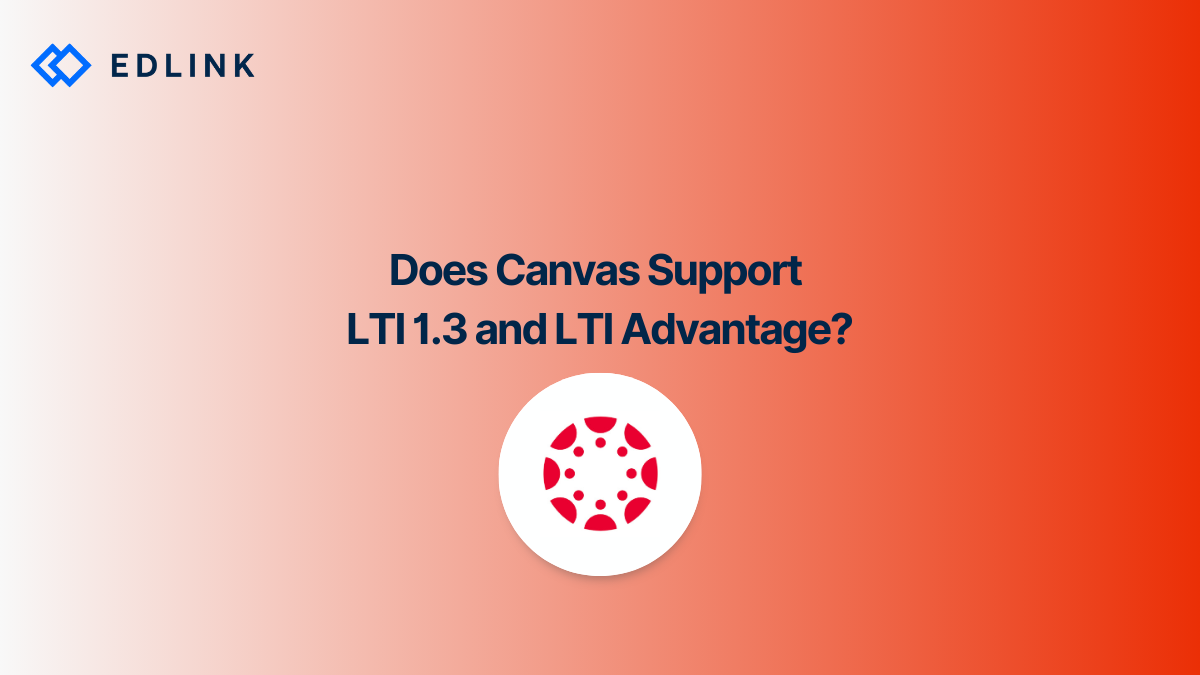Canvas supports LTI v1.3 and LTI Advantage Complete. For edtech developers, Canvas can use the LTI 1.3 framework and supports all 3 of the LTI Advantage services:
- Assignment & Grade Services,
- Names and Role Provisioning Services, and
- Deep Linking.
In addition to LTI, Canvas also supports several other standards from 1EdTech, including the OneRoster standard, "thick" Common Cartridge, and Thin Common Cartridge.
What integration functionality can Canvas run with LTI 1.3 and LTI Advantage?
LTI 1.3, the most recent release of the LTI specification, defines how users authenticate into LTI 1.3-compliant third-party tools. The authentication process in LTI 1.3 incorporates a modern security model, such as using JSON Web Tokens and OAuth 2.0 workflows.
LTI Advantage is built on top of the LTI 1.3 framework. LTI Advantage is a list of services that LTI apps can use to enhance interoperability. These services include features such as grade passback within Canvas, or the ability to provision accounts in the app based on enrollments in Canvas.
How else can edtech developers integrate with Canvas?
Alternatively, vendors can integrate with Canvas using the Canvas API. The Canvas API allows for integrated functionality, such as SSO and grade passback. The Canvas API allows edtech products to create resources in Canvas and lets developers have complete control over the user experience. There are some strong differences between LTI vs API integrations that any edtech developer should be aware of.
Canvas has two distinct public APIs:
- Canvas REST API
- Canvas GraphQL API.
The GraphQL API is newer than the REST API architecture. Though Instructure (the parent company) stated that the GraphQL API will be the priority for development going forward, it still does not have all of the features that are included in Canvas’s REST API.
How to start integrating with Canvas?
To begin integrating with Canvas, developers need to understand the needs of their clients – learning institutions.
Example: Does a learning institution specifically need a “Canvas-LTI integration”? Or does the learning institution need to be able to SSO and use Canvas?
In our experience, the first question above is how many learning institutions and edtech developers talk about integrations. But in reality, the second question is usually the “coded” message the learning institution is trying to communicate.
When developers truly understand the school’s integration needs, questions like these (above) can lead to different integrations that would be more accurate, focused, and impactful for the user.
*Updated: 11.29.23
Read More on Canvas
Here are other articles we’ve written on building integrations with Canvas to help you on your journey:
- API vs LTI for Canvas Integration
- The Challenges of Integrating with Canvas
- How to Implement Single Sign-On with Canvas
- What Exactly are Canvas Developer Keys?
- Integrated Data Providers Matrix
Learn More about Edlink
If you're looking for a partner who can help guide you through developing LMS integrations (like these), then let’s introduce ourselves. We’re Edlink!

